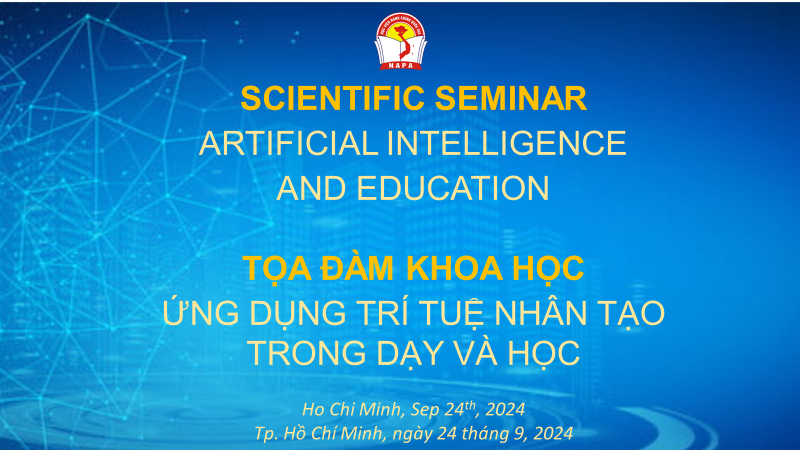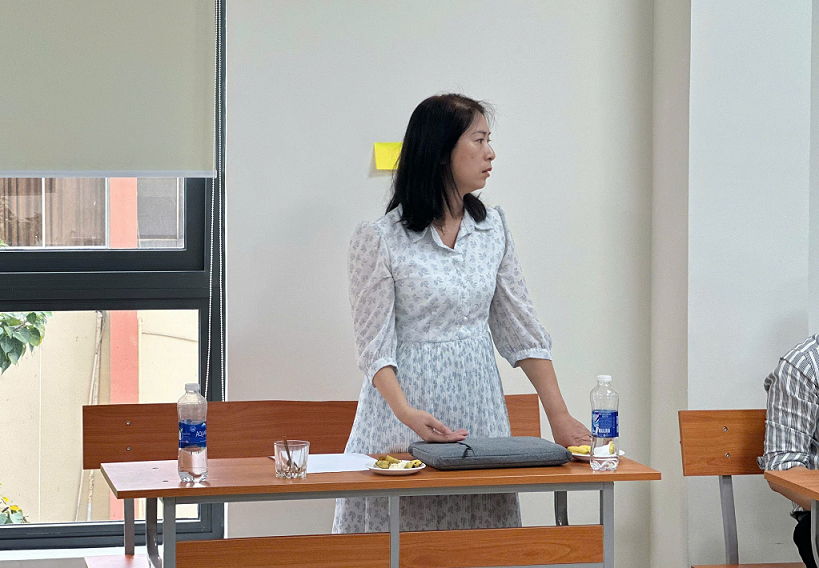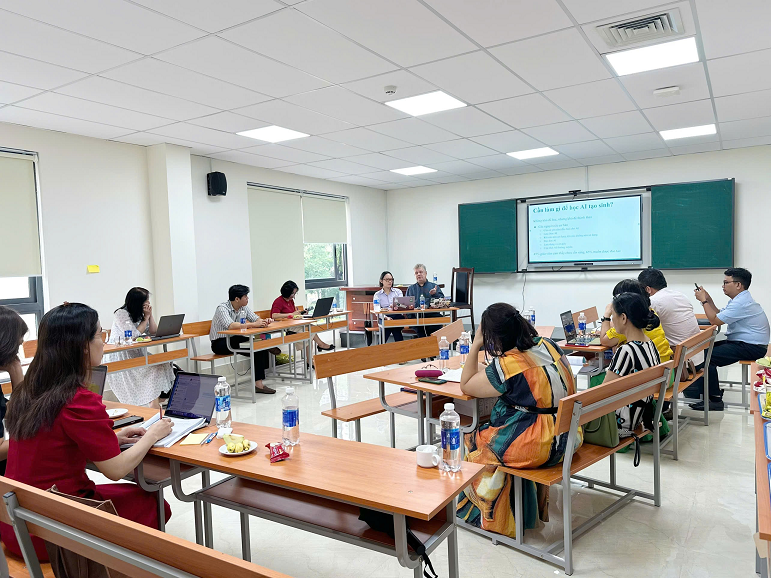On September 24, 2024, the Ho Chi Minh City Campus of the National Academy of Public Administration (NAPA HCMC) held a scientific seminar titled ” Artificial Intelligence and Education.” The seminar served not only as a forum for lecturers and scientists both within and outside NAPA HCMC to exchange and discuss related topics but also as a valuable resource for the lecturers to enhance their research and teaching capabilities.
The seminar featured the participation of Mr. Lefevre Olivier, group management expert specializing in collective intelligence and design thinking; Dr. Pham Thanh Thao, expert in innovation management, strategic management, and soft skills, along with lecturers and scientists from various departments and faculties of NAPA HCMC.
During the seminar, the participants focused on discussing key and fundamental issues related to artificial intelligence, how AI is used in teaching, learning, and research activities: (1) An overview of artificial intelligence (AI); (2) How AI uses data and trained models to perform tasks; (3) The benefits of AI in education; (4) Some challenges faced by students and lecturers when using AI; (5) How to absorb and apply AI tools to make the teaching and learning process more effective.
The seminar was lively, with many thought-provoking opinions being shared. The participants unanimously agreed that artificial intelligence technology is now present in every aspect of life and has become an essential part of human civilization. The lecturers engaged in discussions and posed questions to the two experts regarding the application of ChatGPT in the specific work of lecturers and employees at NAPA HCMC, as well as the attitudes and responses of lecturers when discovering students using ChatGPT to cheat during exams.
During the discussion, Ms. Ton Nu Thi Sau, a lecturer from the Department of Foreign Languages and Informatics, shared, “Currently, most lecturers, students, and learners at NAPA HCMC are aware of and use ChatGPT software. Artificial intelligence can drive innovation in teaching methods. Lecturers can use AI to effectively and personally compile lesson content. For example, when preparing lessons, lecturers can ask AI to automatically create teaching materials like slides, exercises, and practice activities, while also adjusting content to suit different groups of students and learners. However, no AI has yet reached 100% accuracy. To use this tool effectively, we need to further improve our knowledge and avoid over-reliance on AI.”
Agreeing with this viewpoint, Assoc. Prof. Dr. Ta Thi Thanh Tam, Dean of the Faculty of Archival Studies and Office Management, emphasized, “The easy access to AI tools can lead to issues such as plagiarism or cheating in students’ academic work. Students using AI tools to write essays, assignments, and even computer programs significantly impacts the assessment process by lecturers. The development of artificial intelligence needs to be accompanied by the establishment of strict policies. Implementing anti-plagiarism tools integrated with AI is a necessary step to ensure academic integrity. The institution can harness the power of AI in education while still protecting the core values of honesty and fairness.”
In his concluding remarks at the seminar, Mr. Nguyen Ngoc Toan, Head of the Division of Scientific and Library Management, affirmed, “AI has arrived and is here to stay. Artificial intelligence benefits teaching, research, and learning, but certain shortcomings still exist. This necessitates appropriate solutions from NAPA HCMC to equip lecturers and learners with the necessary knowledge and skills, encouraging students to simultaneously develop their thinking abilities and research capacity.”
The seminar concluded successfully in an open and forward-thinking atmosphere, highlighting many issues that need to be addressed in the future.
Some photos at the seminar:
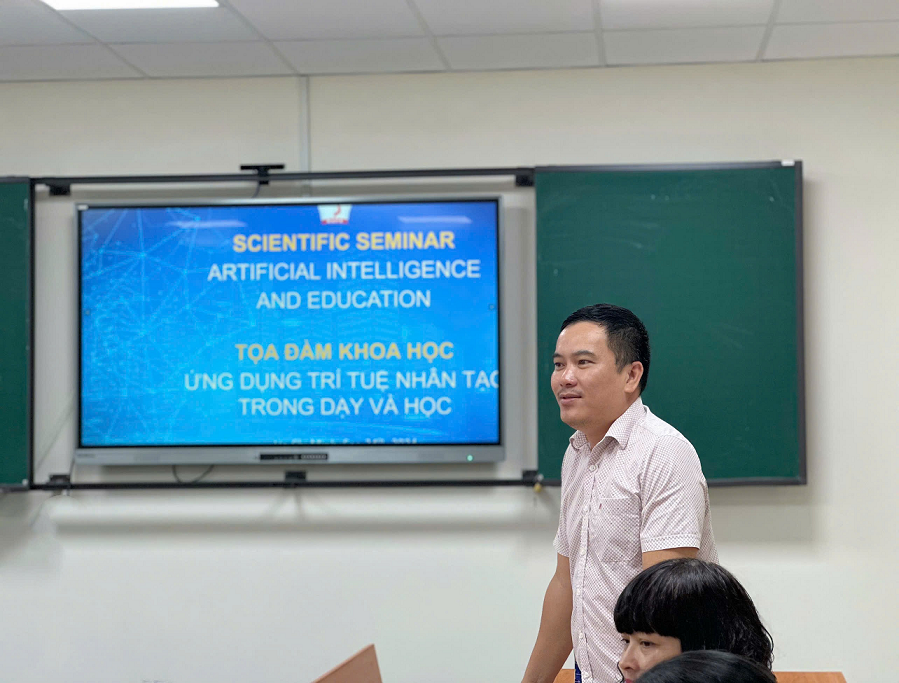
Mr. Nguyen Ngoc Toan, Head of the Division of Scientific and Library Management, delivering the opening remarks.

Mr. Lefevre Olivier, group management expert specializing in collective intelligence and design thinking and Dr. Pham Thanh Thao, expert in innovation management, strategic management, and soft skills, speaking at the seminar.
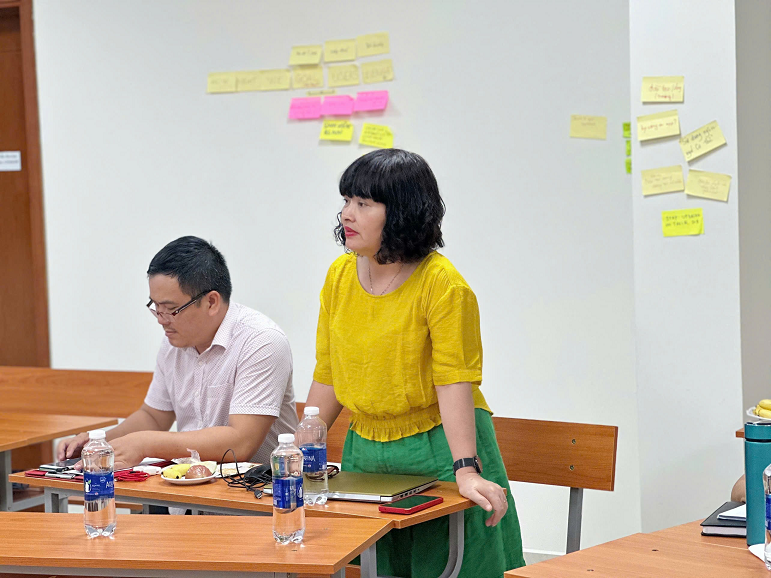
Assoc. Prof. Dr. Ta Thi Thanh Tam, Dean of the Faculty of Archival Studies and Office Management, speaking at the seminar.


